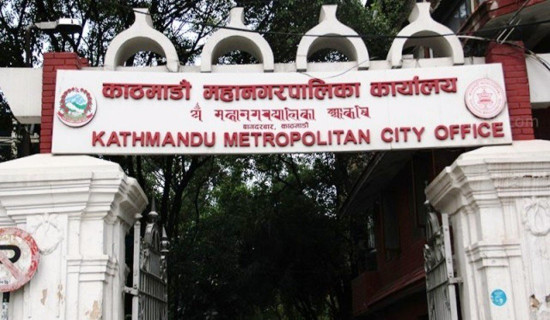- Tuesday, 24 February 2026
The Rise Of The Independents
Shyam Prasad Mainali
With local elections recently concluded, Nepal has elected scores of independent candidates nationwide, including the Kathmandu Metropolitan City. Without affiliation with any major political party, the candidates lacked the access to network that greatly benefit any prospective candidate. The number of independent candidates arose out of dissatisfaction with the performance of previous governments and mainstream political parties. A large number of votes for independent candidates also arise out of the desire of the population to vote for an alternative to the mainstream parties as they have been largely associated with bad governance and corruption. This is a more critical form of voting as the electorate has voted due to their dissatisfaction of these parties.
The mainstream parties have failed to appeal to their respective voters. What did they achieve in their past tenure? What are their future plans? What are the programmes they would implement? How would these plans benefit their respective constituencies? These are pertinent questions raised when it comes to the performance of the parties at the local level. Issues of paramount importance such as local development, good governance, improving public service delivery and curbing corruption at the local level were not discussed and prioritised.
Proactive engagement
Candidates from the mainstream parties were focused on how to mobilise cadres and other loyalist factions within their constituencies as opposed to engaging the local electorate. This failure paved the way for independent candidates who were more proactive in engaging the voter base. Headlines were made as Belendra Shah, an engineer/rapper, was able to defeat the respective candidates fielded by Nepali Congress and CPN-UML. The commitments of independent candidates remained grounded, and they proved to be more sincere in the eyes of voters.
In most democratic societies, independent candidates receive marginal votes in the elections. As the elections are expensive, independent candidates lack the logistical, financial and the network access that the candidates from the mainstream parties enjoy. This has led to a duopoly of power in advanced democratic societies highlighted by the dominance of Republican and Democrat parties in the USA and Labour and Conservatives in the UK.
Independent candidates contest in electoral politics throughout the world. They are permitted to run in the electoral system of thirty-four democratic countries. Success of such candidates depends on the different electoral rules. Seat allocation systems such as majority, plurality, and proportional representation (PR) affect the electability of the candidates. PR promotes party consolidation and subsequently weakens their strengths. Votes for independents are found influenced by grievances against the political system and by those who are seeking an alternative to the status quo.
Desperate voters or anti-party sentiments and discontentment with two-party duopoly were shown in different elections to drive voting for independents in the USA. Independent supporters generally feel alienated from mainstream political parties and lack political parties’ identification in Europe. Candidates prefer to run independent in Ireland as flexibility and autonomy are offered more when compared with party cadres. They highlight single issues, represent community or social groups, and represent only in local areas. Independents in Ireland run with a clear activist orientation with an agenda in mind which in turn enhances the quality of democracy by raising pertinent issues not addressed or ignored so far by mainstream party platforms.
Due to the unequal privilege in accessing positions of political power, democratic system has faced critical attacks. If interested and qualified candidates are unable to make a credible bid to power because of structural barriers such as lack of wealth, connections, registration requirements and excessive presence of political party’s cartel system, it has a detrimental influence on the democratic credentials of the state.
Many circumstances found in American and European countries are similar with the electoral process and election system of Nepal. Independents throughout the world make a calculated decision to run as independents because they failed or do not prefer to secure party nomination. These candidates have the potential of sufficient resources, brand recognition, and the network of their own. They do not need party recognition, nomination and branding as well and feel comfortable that they can easily avoid the political bargaining associated with party nominations.
Structural impediment
Independents are structurally disadvantaged when compared to party candidates. Independents lack ready-made party machinery to support campaign efforts which is a significant impediment to them for electoral success. In many parts of the globe, it has been experienced that party affiliation, socio-economic capital, and governing experience are the most important predictors of electoral success. Such candidacy has failed to alleviate unequal access to political office and increase democratic representation. Most countries show that there are no academics, members of civil society groups, or religious groups, who have won an election as an independent and we belong in the same category.
In Nepal rise of independents is the consequence of high frustration with the mainstream party. If proper measures are not taken immediately to transform these frustrations into constructive mainstreaming of citizens in nation building, what awaits Nepal again would be drastic change in the political system, electoral process, election system and system of governance as well. The people have significantly challenged the existing party politics as well as pathological character infesting the governance system.
(Mainali is a former government secretary.)

















